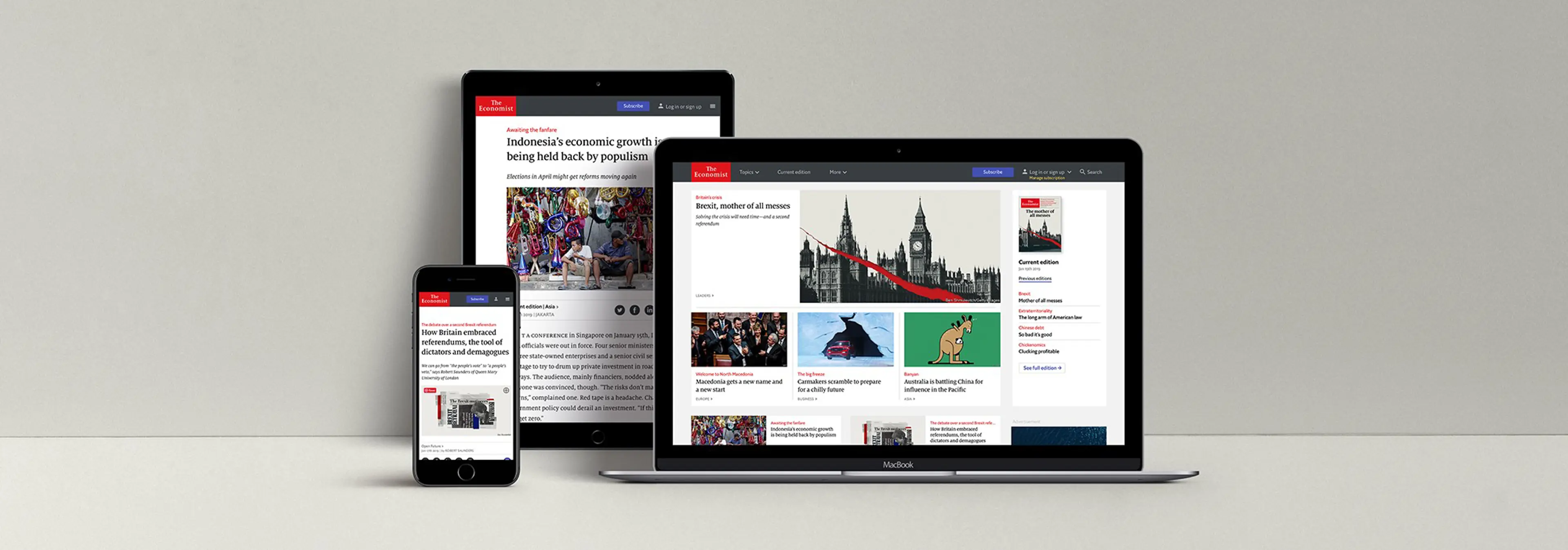
News
1 Jan 2019
2 Min Read
A Conversation with The Economist's Denise Law
More than just a newspaper, The Economist Group is a media company that challenges readers to critically examine the fundamental issues facing our planet.
News

Retail & Luxury Goods
4 Sept 2025
9 min read

News
5 May 2025
3 min read

News
17 May 2024
2 min read

News
1 Jan 2019
2 Min Read
More than just a newspaper, The Economist Group is a media company that challenges readers to critically examine the fundamental issues facing our planet.
News